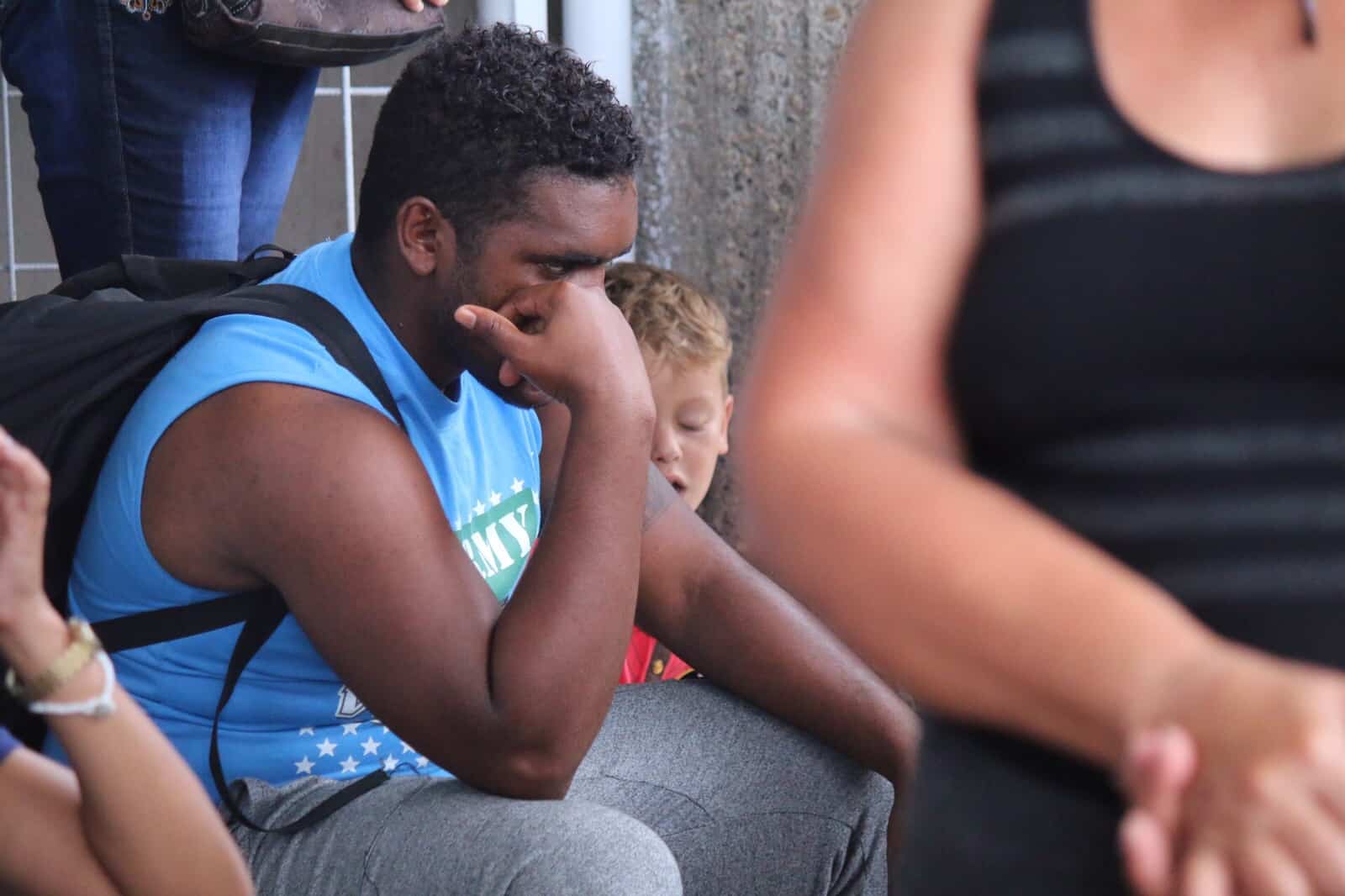Costa Rica’s options for dealing with the more than 4,000 Cuban migrants marooned in the country on their way to the United States are growing fewer by the day, leaving the government to consider arranging flights for the migrants out of the country.
The latest complication in the saga comes as President Luis Guillermo Solís plans to travel to Cuba Dec. 15 and 16. Solís has said the Cuban migrant crisis will not be a main focus of his trip to the island.
Nicaragua refuses to let the Cubans cross into the country. And Guatemala also has now refused to allow Cuban migrants to pass through its territory, Costa Rica Foreign Minister Manuel González said Thursday.
González said negotiations were set to begin with Belize as an alternative route for the thousands of Cubans who have been waylaid in Costa Rica for three weeks now. A response is not expected from Belize until Tuesday, González said.
No corridor for the ‘humanitarian corridor’
The news from Guatemala and Nicaragua’s continued blockade of Cuban migrants at its border with Costa Rica means the “humanitarian corridor” proposed by Costa Rica at a summit of Central American leaders in El Salvador on Nov. 25 is effectively dead.
González said Guatemala — a country that sends thousands of migrants to the U.S. yearly — listed the large number of Cuban migrants, along with security and logistical concerns among its reasons for not agreeing to safe passage for the migrants.
The foreign minister mentioned that the Costa Rican government was exploring the possibility of flying the Cubans out of the country, but González had no specifics on when or how many fights could be used to move the Cubans. Migrants would be responsible for paying for their own flights, González said, but the government is in talks with airlines to explore affordable options for the migrants to leave.
President Solís’ upcoming trip to Cuba was scheduled a year ago, González said. According to Casa Presidencial, Solís’ trip was designed to “formalize the reestablishment of diplomatic relations” with the island, and the delegation would discuss business investment opportunities, health and sports.
According to Immigration Administration figures, more than 4,300 temporary transit visas have been issued to Cuban migrants in recent weeks. More than 3,000 Cuban migrants are living in temporary shelters across northwestern Costa Rica.
Minister González said that Cubans continue to arrive at Costa Rica’s southern border with Panama at the rate of more than 100 a day.
Meanwhile, Ecuador announced on Nov. 26 that it would start requiring visas from Cubans traveling there, the first leg in an increasingly popular route through South and Central America to the U.S.
Cuban and U.S. representatives met earlier this week to discuss several issues, including migration, but no new agreements on the issue were made. The Cuban government has said that the current U.S. immigration policy for Cubans — which affords them U.S. visas after they set foot on U.S. soil — is a detriment to the recent détente between the Cold War foes.
González ruled out U.S. involvement in resolving the crisis of Cuban migrants here. Citing the U.S Cuban Adjustment Act, González noted that U.S. immigration law allows Cubans without visas to stay in the U.S. when they arrive but not to travel there legally.
“There’s a certain contradiction there,” González said, “but it’s not my place to comment on it.”






